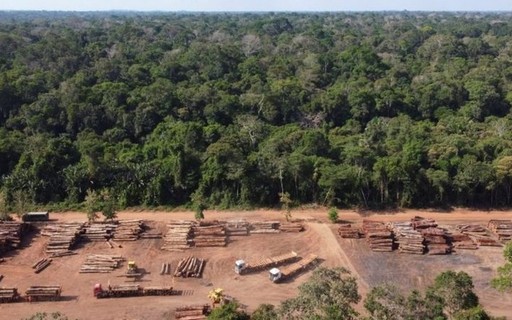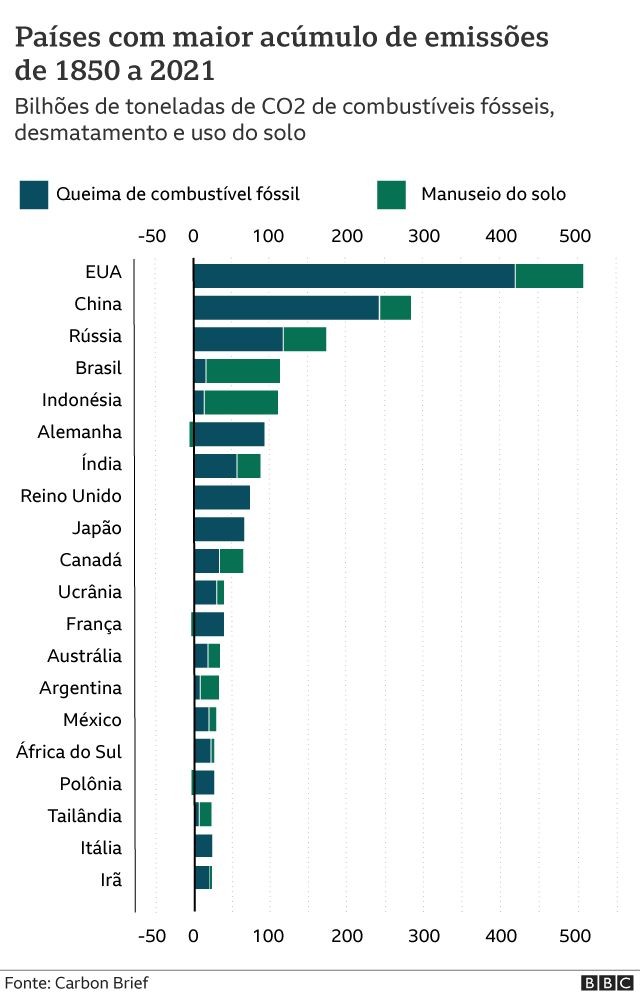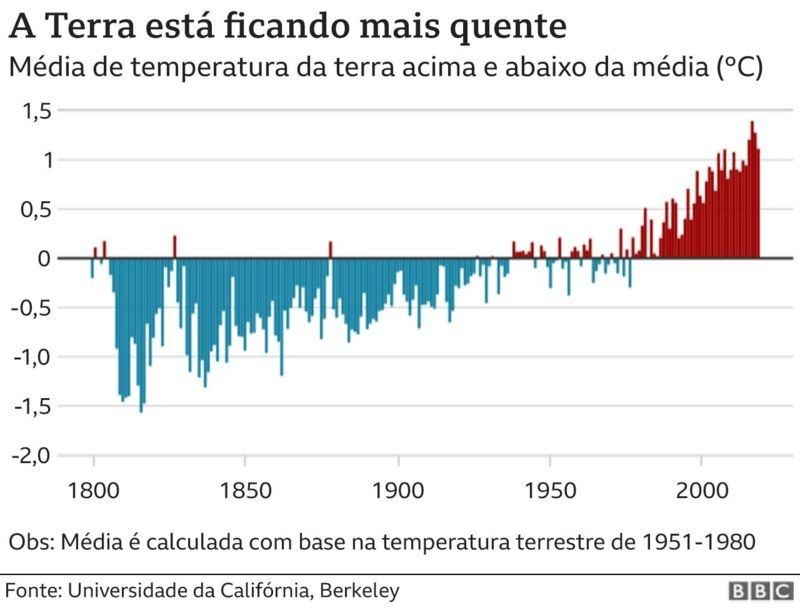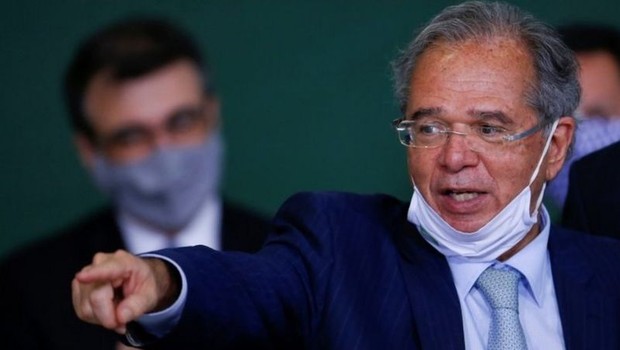

The survey takes into account, for the first time, emissions from deforestation, not just burning fossil fuels (Image: Reuters via BBC)

At COP 26, the upcoming United Nations conference on climate change, Brazil intends to underscore the argument that developed countries have polluted far more throughout history to enrich themselves and therefore should compensate developing countries for protecting their forests.
But a new survey of the cumulative history of carbon dioxide emissions places Brazil among the world’s top polluters. In the study, which for the first time takes into account deforestation when calculating carbon dioxide emissions, Brazil appears fourth in emissions rankings since 1850.
China, the emerging giant that only intends to start reducing its emissions after 2030, has been identified as the second largest emitter of greenhouse gases in history, after the United States.
The survey was conducted by the international research body Carbon Brief, and takes into account data on emissions from fossil fuel burning, changes in land use, cement production, and deforestation from 1850 to 2021. It does not include pollution from forest destruction.
Brazil and Indonesia climb into the top five in pollution

The change in methodology alters the list of the 20 largest historical pollutants. The 2019 Carbon Briefing Survey, which looked only at emissions from fuel combustion, identified the United States, China, Russia, Germany and the United Kingdom as the top five emitters.
The updated study, published in October, included Brazil and Indonesia among the top emitters due to the release of carbon dioxide into the atmosphere from deforestation and land management over the past 171 years.
According to this new ranking, the five most polluted countries since the Industrial Revolution, from 1850 to 2021, are: the United States of America, China, Russia, Brazil and Indonesia. In Brazil and Indonesia, most emissions come from deforestation and land use for livestock and agriculture, not from burning fossil fuels, as happens with other major pollutants.
Therefore, according to ecologists, studies that do not take into account emissions from deforestation neglect the characteristics of Brazilian pollution.
According to Marcio Astrini, executive secretary of the Climate Observatory, an organization that annually calculates emissions in Brazil, in the past 30 years, about 80% of the country’s emissions have resulted from deforestation and land use for livestock.
“If you take the last 30 years, 73% of the planet’s emissions are in energy. If you spend the last 30 years in Brazil, 55% of the emissions are from deforestation. If you include the emissions from Brazilian cattle, Astrini told BBC News Brasil.” “The number of people is about 80%.”
Discussion on the responsibilities for controlling climate change will be central to the COP26 meeting, which will take place from October 31 to November 12 in Glaglow, Scotland. At the meeting, leaders from more than 100 countries will negotiate new commitments to secure the Paris Agreement’s goal of keeping global warming at 1.5°C.
Poor and developing countries should demand more compensation from rich countries and show that they have failed to meet their commitment to contribute $100 billion annually to work to mitigate climate change.
In contrast, the United States, the United Kingdom, and the European Union are trying to get from large emerging countries, such as Brazil, Russia, China and India, more ambitious commitments to control deforestation and reduce emissions.
Brazil is expected to be one of the most stressed countries, due to the significant increase in deforestation and burning of the Amazon in the first three years of Bolsonaro’s government.
In this struggle between rich and developing nations, each nation’s responsibility for global warming will be measured, among other ways, by its current and historical volume of emissions.
What does the new arrangement reveal?

The survey, published by the Carbon Brief, indicates that countries with the largest accumulation of emissions since the start of the Industrial Revolution will also be most responsible for climate change.
“The history is important because the buildup of carbon dioxide emitted since the beginning of the Industrial Revolution is closely related to the 1.2°C warming that has already occurred,” study author Simon Evans wrote.
“Co2 emissions for hundreds of years have continued to contribute to global warming, and current warming is determined by the total cumulative emissions over time.”
Since 1850, human actions have been responsible for emitting 2.5 trillion tons of carbon dioxide into the atmosphere, according to the study. First in the pollution rating, the US will be responsible for 20% of all emissions. China appears in second place, responsible for 11% of global carbon dioxide.
Russia comes next with 7% of emissions. Brazil, according to the study, is responsible for 5% of the total emissions in the last 171 years and Indonesia for 4%.
According to research, from 1950 onwards, the acceleration of deforestation in these two countries began to cause a significant increase in emissions.
The study, published by Carbon Brief, says: “Rain forests were already cleared in Brazil and Indonesia in the late 19th and early 20th centuries to produce rubber, tobacco, and others.
According to the survey, Brazil has released 112.9 billion tons of carbon dioxide (GtCO2) since 1850. More than 85% of this volume is associated with deforestation. Among the top 20 polluters, Brazil leads in the category of deforestation and emissions associated with land use.
The study also notes that Germany and the United Kingdom account for 4% and 3% of total historical emissions, respectively. But this ratio does not take into account the pollution that they caused abroad, during the period in which they colonized the nations. Therefore, their historical responsibility may be much greater than what the numbers reveal.
What does the new ranking mean for Brazil?

Economy Minister Paulo Guedes said this week that Brazil should not be seen as an environmental villain because it would have less responsibility for total emissions (Image: REUTERS/ADRIANO MACHADO via BBC)
Brazilian government officials frequently use the argument that Brazil is not a major polluter, to say that demands for ambitious climate control goals should be directed at rich nations.
Various surveys that do not take deforestation into account for emissions place Brazil in seventh or sixth place in the ranking of emissions, as being responsible for about 3% of the total carbon dioxide in the atmosphere.
The Brazilian negotiating team will present to COP26 a document arguing that Brazil is not a major source of carbon dioxide and, therefore, its voluntary commitment to reduce emissions by 43% by 2030, based on 2005, is ambitious enough.
“Brazil’s Nationally Determined Contributions (the document in which countries present climate targets) are more ambitious than those of many G20 countries. Brazil accounts for less than 3% of global emissions, and our commitment includes a target not only for 2030, but also a short-term target for 2015, allowing for better monitoring of mitigation measures”, says the text of the Brazilian delegation, which BBC News Brasil had access to.
At COP26, Brazil will commit to reducing emissions by 37% by 2025 and by 43% by 2030 and achieving carbon neutrality by 2050 – when emissions are minimized and the rest is fully offset by reforestation to absorb CO2 from the atmosphere or carbon. Capture techniques.
This week, Economy Minister Paulo Guedes also launched the argument that Brazil is not a big polluter, criticizing demands to reduce deforestation.
“It is not possible to treat Brazil as an international pollution villain. When we deal with pollution flows, Brazil has 1.7%, Europe has 15%, the United States has 15%, and China has 30%. How can you this country that is less polluted to be the most attacked on The international level? There are clearly political and commercial interests behind it,” Geddes said, without specifying where he got these percentages from.
But for environmentalists, the survey that identified Brazil as the fourth largest carbon emitter in history puts the country in a position of great responsibility for controlling climate change.
“Brazil is one of the largest emitting countries in the world. It currently ranks sixth in emissions and is the fourth largest in history. Therefore, it has an important role in reducing emissions, despite being a developing country that faces challenges in terms of emissions and poverty reduction. Carlos Rittel, a public policy specialist at the Rain Forest Foundation, an environmental NGO from Norway, told BBC News Brasil.


“Friendly zombie guru. Avid pop culture scholar. Freelance travel geek. Wannabe troublemaker. Coffee specialist.”






